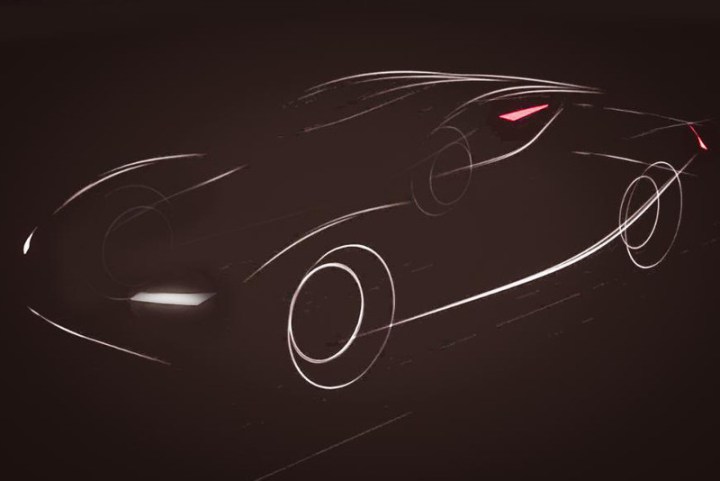
Co-founded in 2007 by former Tesla Vice President Bernard Tse and Astoria Networks founder Sam Weng, Atieva initially built components for electric and plug-in hybrid cars, but it quickly turned its attention to becoming a full-fledged car maker. A major deal with BAIC offshoot Beijing Electric Vehicle Company is expected to provide Atieva with the funds it needs to reach its goal. Atieva has also inked partnerships with Germany’s Siemens, a South Korean firm called SK Group that makes battery cells, and an Italian company named CECOMP that specializes in the small-scale production of cars and in building prototypes.
BAIC and Atieva are currently designing their first car at a newly inaugurated research center in Silicon Valley, and an early sketch (pictured) published on the company’s official website suggests the model will boast a highly aerodynamic design with a sleek, fastback-like silhouette. Reuters has seen more revealing design sketches, and it reports that the car looks like “a futuristic descendant of the Audi A7.” We’ll let you judge whether or not that’s a flattering description.
Engineers are putting a big emphasis on performance; clearly, Tesla’s oft-publicized Ludicrous Mode has left no one in the auto industry indifferent. That’s why the startup is working on an all-electric drivetrain programmed to generate no less than 900 horsepower. The setup is currently installed in a heavily modified Mercedes-Benz Vito, a midsize commercial van that’s closely related to the Metris. The roughly 5,000-pound van is capable of hitting 60 mph from a stop in just 3.1 seconds, on par with many of the world’s most-expensive sports cars, and Atieva predicts its first series-produced car will perform that same task in approximately 2.7 seconds.
Atieva’s A7-like premium sedan is scheduled to launch in 2018, and the lineup will grow with the addition of two premium crossovers in 2020-2021. By the time these three models hit the market, the company’s rivals could also include an enigmatic startup named Faraday Future that’s currently based in a former Nissan research and design building in Gardena, California.
Editors' Recommendations
- New Model 3 ‘takes out the baby fat,’ Tesla designer says in new video
- Tesla’s charging connector is taking over. Here’s every company that will switch
- Tesla recall aims to end the chill in newer vehicles
- Apple continues breakup with China as supplier plans $1 billion India investment
- Sonos takes aim at Apple Music and Spotify with ad-free, original radio stations




